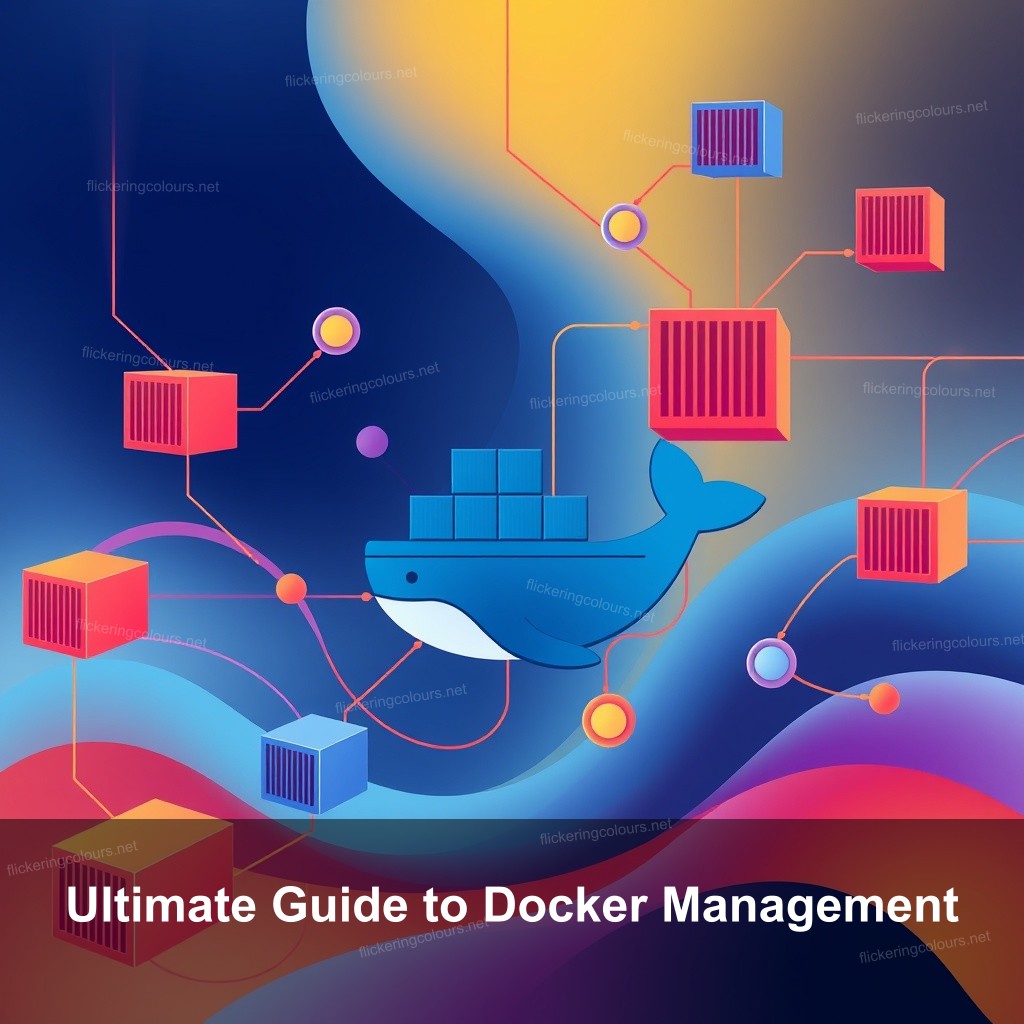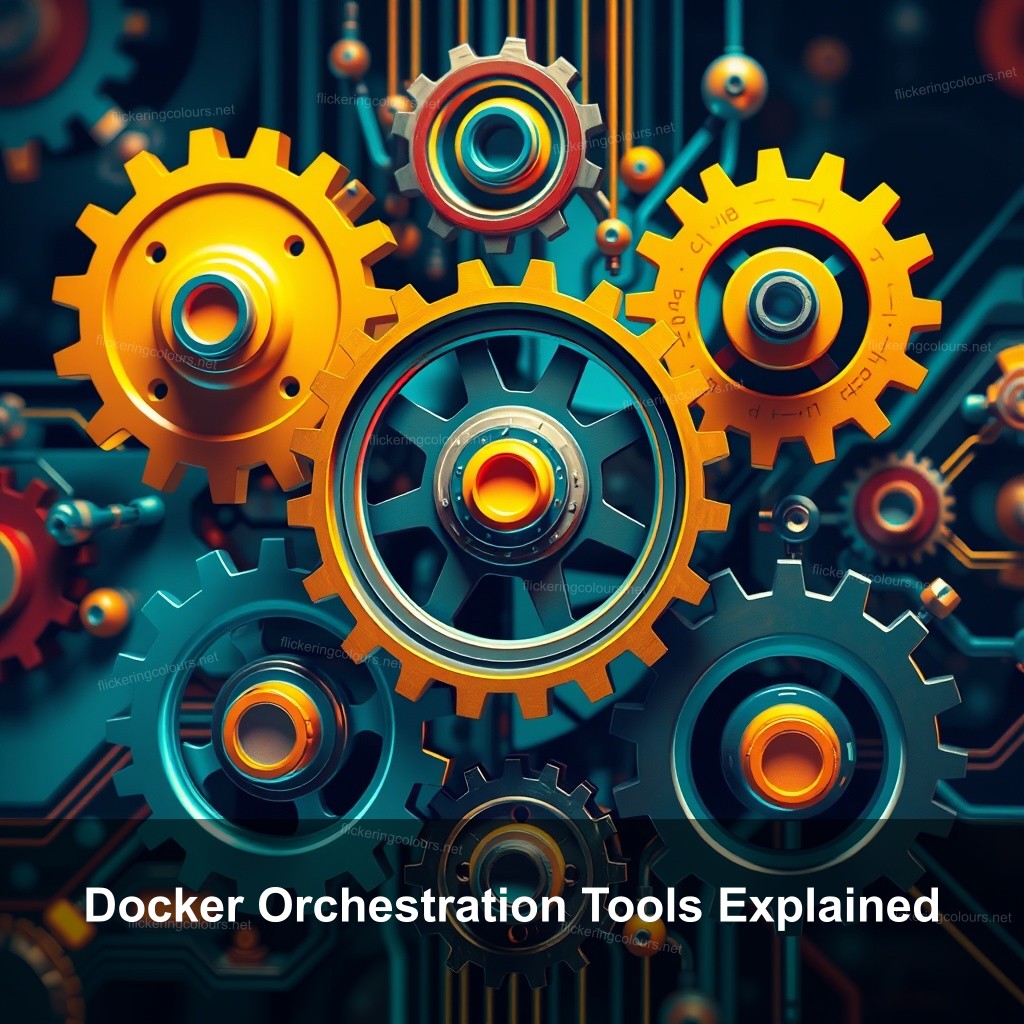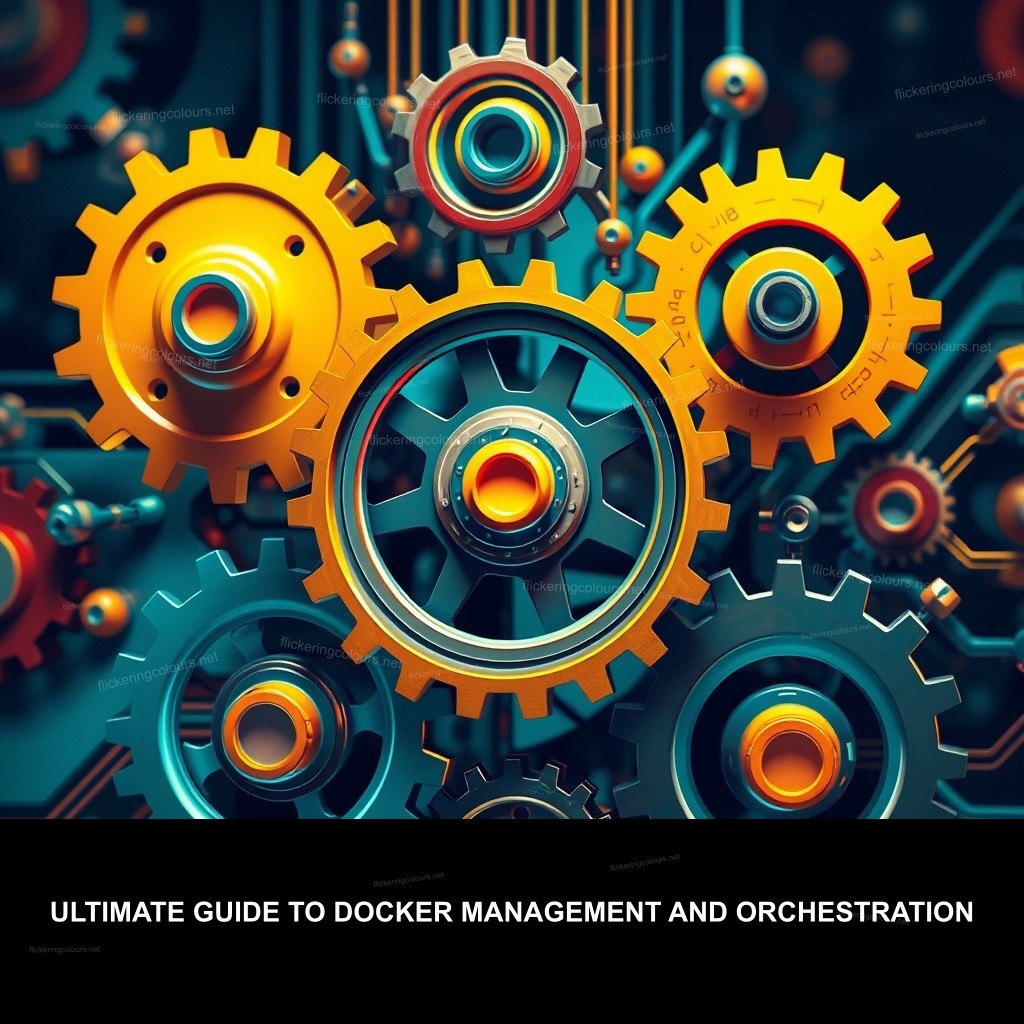Did you know that effective Docker management can significantly improve your application’s performance and scalability? At Flickering Colours Media, we aim to equip you with the knowledge needed to navigate Docker management and orchestration effectively. This guide will cover essential tips on how to manage Docker containers, explore orchestration tools, and compare Docker Swarm with Kubernetes, ensuring you gain a complete understanding of these important tools.

Ultimate Guide to Docker Management
Docker management is the backbone of successful containerized applications. It involves overseeing the creation, deployment, and maintenance of Docker containers throughout their lifecycle. Mastering Docker management not only streamlines application deployment but also improves efficiency and resource utilization.
Understanding Docker Management
In the evolving tech landscape, Docker management plays a significant role. It helps developers streamline their workflows and makes sure that applications run smoothly across different environments. Understanding how to manage Docker containers effectively is essential for any developer or system administrator.
| Component | Description |
|---|---|
| Docker Images | Blueprints for creating containers. |
| Containers | Running instances of Docker images. |
| Volumes | Persistent storage for containers. |
By mastering these components, you’ll be well on your way to effective Docker management.
Key Components of Docker Management
Docker management encompasses several key components:
- Docker Images: These are the blueprints for creating containers. Understanding how to manage and optimize images is crucial for effective Docker management.
- Containers: These are running instances of Docker images. Proper management includes monitoring and troubleshooting container performance.
- Volumes: They provide persistent storage for containers. Learning how to manage volumes ensures data integrity and availability.
By mastering these components, you’ll be well on your way to effective Docker management.
Best Practices for Docker Management
Implementing best practices in Docker management can significantly enhance your container orchestration. Here are some effective strategies:
- Maintain Lightweight Containers: Aim to keep containers small. This approach improves speed and reduces complexity.
- Implement Version Control: Use version tags for Docker images to ensure you can rollback to previous versions if needed.
- Regularly Monitor Performance: Utilize monitoring tools to keep an eye on container health and resource usage.
These practices not only boost performance but also facilitate easier troubleshooting and maintenance. For further reading, check out our article on Best Practices for Docker.

Docker Orchestration Tools Explained
Orchestration tools are essential for managing multi-container applications. They automate deployment, scaling, and management of containerized applications, reducing the operational overhead for developers and system administrators.
Introduction to Orchestration
Orchestration refers to the automated management of containerized applications. It allows developers to focus on coding rather than worrying about manual deployment processes. This automation is crucial for ensuring high availability and reliability of applications.
By exploring the different orchestration frameworks available, you can choose the right one that fits your needs. When selecting an orchestration tool, consider factors such as ease of use, integration capabilities, and the specific requirements of your application.
Comparison of Docker Swarm and Kubernetes
When it comes to orchestration tools, Docker Swarm and Kubernetes are two of the most popular options. Here’s a brief comparison:
| Feature | Docker Swarm | Kubernetes |
|---|---|---|
| Setup Complexity | Simple | Complex |
| Scalability | Moderate | High |
| Learning Curve | Low | Steep |
This comparison highlights the importance of choosing the right tool for your orchestration needs. For more insights, consider reading about Docker Security Overview.
Choosing the Right Orchestration Tool
Choosing the appropriate orchestration tool depends on your specific requirements. Factors to consider include:
- Size of the application
- Team’s familiarity with the tool
- Integration with existing tools and workflows
Using the wrong tool can lead to inefficiencies, so it’s essential to evaluate your options carefully.
How to Manage Docker Containers Effectively
Managing Docker containers effectively is vital for ensuring optimal performance and reliability. Here are some critical strategies to achieve this:
Step-by-Step Guide to Managing Containers
To manage Docker containers effectively, start by setting up your Docker environment properly. Here’s how:
- Install Docker: Ensure you have the latest version of Docker installed on your system.
- Configure Docker Environment: Set up the necessary configurations to optimize performance.
- Create Your First Container: Use the command line to create and run your first container.
Once these steps are completed, you can begin to explore container management commands. For a detailed guide, refer to How to Effectively Deploy Applications with Docker.
Commands for Basic Container Management
Familiarizing yourself with essential Docker commands is crucial for effective container management. Here are some key commands:
- docker run: Create and start a container.
- docker ps: List all running containers.
- docker stop: Stop a running container.
These commands form the foundation of Docker container management and should be second nature to anyone working with Docker.
Monitoring and Troubleshooting Containers
Monitoring your containers is vital for maintaining performance. Use tools like Docker stats and logs to keep track of resource usage and identify issues. Here are some tips:
- Set up alerts for high resource usage.
- Regularly review logs for errors.
- Utilize third-party monitoring solutions for deeper insights.
By proactively monitoring your containers, you can resolve issues before they impact your application.
Low Competition Keywords for Docker Management
Exploring low competition keywords can help boost your visibility in search engines. Here are some to consider:
Easy Docker Orchestration Solutions
For those just starting Docker orchestration, simple solutions might help to flatten the learning curve. Tools like Docker Compose let consumers easily define and operate multi-container apps. Beginners especially could find this very helpful.
Familiarize yourself with these tools to improve your Docker orchestration experience.
Docker Management Tips for Beginners
As a beginner, it’s important to grasp foundational Docker management tips. Start by understanding the fundamental commands and best practices. Here’s a quick checklist for new users:
- Utilize Docker’s built-in help commands.
- Practice with sample projects.
- Engage with the Docker community for support.
By following these tips, you’ll be well on your way to mastering Docker management.
FAQ
What is Docker management?
Docker management involves overseeing the deployment, scaling, and maintenance of Docker containers. This ensures optimal performance and resource utilization.
How do I choose between Docker Swarm and Kubernetes?
Choose Docker Swarm for simpler setups and Kubernetes for more complex applications that require advanced features and scalability.
What are the best practices for Docker orchestration?
Best practices include maintaining lightweight containers, implementing version control, and regularly monitoring performance.
How can I monitor my Docker containers?
You can use built-in Docker commands, third-party monitoring tools, and log reviews to monitor container health and resource usage effectively.
What are some tips for beginners in Docker management?
Start with understanding basic commands, use Docker’s help features, and engage with community resources for support.
Conclusion
Mastering Docker management and orchestration is important for modern application deployment. By implementing the strategies discussed in this guide, you can optimize your Docker experience and ensure application reliability. For more insights and articles, visit Flickering Colours Media and enhance your knowledge.

Leave a Reply